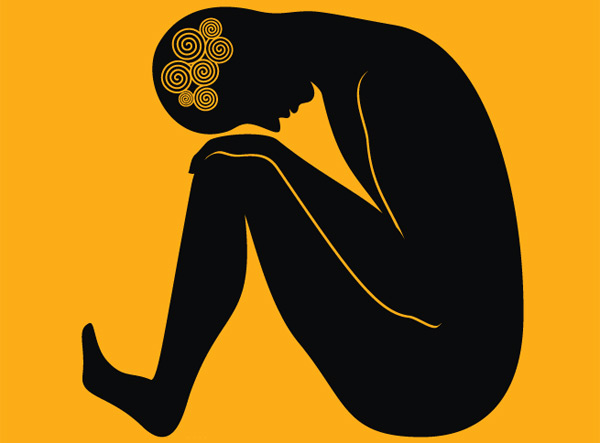Okay, so you’re ready to head home after one of the following nerve-racking experiences: a job interview, an important sales presentation, or a first date. As soon as you close the car door, start the ignition, and drive away—the internal tirade begins. That’s when the voice inside your head gives a play-by-play account (often in slow motion) of every small, medium, and large blunder that you made.
Then, after the initial litany of insults begins to wind down, the voice in your head declares that, “You’re too old, stupid, incompetent, or fat—to get the job, sale, guy, or gal.” Finally, this second phase successfully makes mincemeat of your ego, and that’s when the ruminating shifts to criticizing your conversational content. For instance, you’ll hear a rant like, “I can’t believe you said…blah, blah, blah!”
Our self-criticisms often go up one side and down the other without ever pausing for a breath. Sound familiar? If so, meet “the monkey on your back,” also known as…your Inner Critic.
An Inner Critic is the part of ourselves that negatively monitors what we say, what we do, and how we look. Unfortunately, as shown in my example, this list can go on and on if an Inner Critic is overdeveloped. Like a muscle that gets enlarged from repeated flexing, an Inner Critic that is exercised too much may also become ENORMOUS.
Meanwhile, most Inner Critics have no respect for the passage of time and don’t accept the fact that we can learn from our mistakes. Accordingly, Inner Critics love to dwell on past blunders and overlook all the GREAT things that we’ve accomplished. Let’s face it, overgrown Inner Critics can suck the joy right out of our lives and…wreak havoc on our self-esteem!
In my private practice, I work with many clients who struggle with low self-esteem. These clients often see me because they want to increase their confidence and re-invent themselves in this ever-changing, fast-paced world. They may be looking for a new career, a new partner, or may simply want to hold on to their current job or significant other.
When low self-esteem is a client’s challenge, we often explore the Inner Critic. I explain how, as adults, many of us have Inner Critics who have been “monkeys on our backs” for decades. Untamed Inner Critics use all the smoke and mirrors they can muster in trying to intimidate us. However, if we get past their facades, we’ll see how small and vulnerable they actually are at their cores. And, here lies the answer to this article’s initial question: “What Drives the Monkey on Your Back?” The answer is most likely…FEAR.
Surprised? Yep, I was too, many years ago when I first faced the hostile monkey on my own back. I worked with a therapist during this time, and the growth process was amazing. I learned that my Inner Critic had unexpressed feelings that needed to be understood so I could downsize my self-destructive energies. Clearing out the anger gave me access to the fear underneath.
Ironically, when we venture past the bullying behaviors, we’ll find that most Inner Critics have our best interests at heart. So keep in mind, when Inner Critics attack, they’re often trying to protect us. Yet, this ineffective “method of protection” can damage our self-esteem and ultimately leave us feeling hopeless.
Learning how to compassionately dialogue with the Inner Critic can be life changing. For this reason, I teach many of my clients how to tame their Inner Critics. And, in case you’re interested, I will talk about the Inner Critic during my October 21st workshop at John Muir Women’s Health Center. In fact, I’ll show “before” and “after” posters (that I illustrated) of the Inner Critic. First, I’ll show when it appears as a judgmental monkey—perched tauntingly on our backs. Then, I’ll show the monkey tamed, off of our backs, onto its own back (belly up). From this new vulnerable position, we can hear what’s really going on with our previously unconscious and critical monkey.
Finally, when the Inner Critic no longer acts out of fear and anger, it can serve as a healthy protector of our best interests. For instance, a “reformed” Inner Critic can help us set appropriate boundaries in our lives. And, when the Inner Critic isn’t allowed to zap our innate positive energy and enthusiasm, we’ll feel safe enough to playfully express ourselves…and learn to relax into “our own skins.”
Trina’s Upcoming Workshop: Managing Emotional and Compulsive Eating for Women at John Muir Women’s Health Center: 1656 N. California Blvd., Suite 100, Walnut Creek, Thursday, Oct 21, 6:30-8:30 pm. Seats are limited—register today: (925) 941-7900 option 3.
For more info, go to www.TrinaSwerdlow.com & click on “Private Sessions & Workshops”
To receive my FREE newsletter “Trina’s Transformational Tips for Mindful Living,” sign-up on my website: www.TrinaSwerdlow.com.
